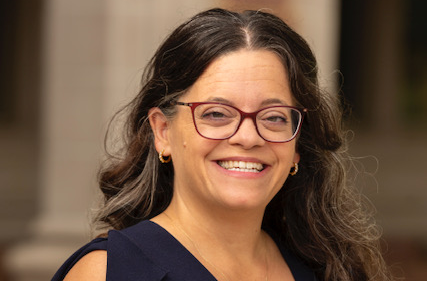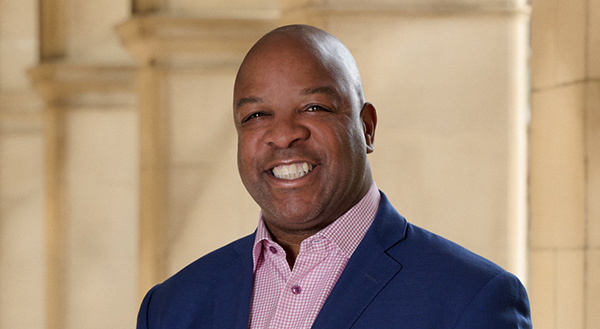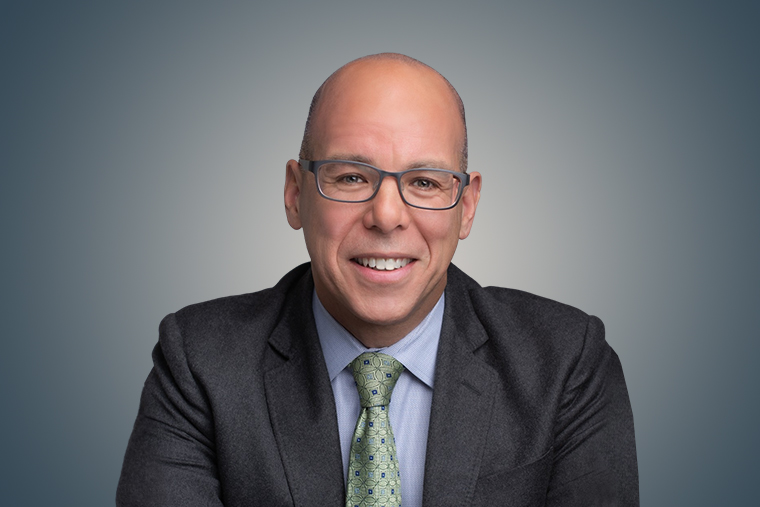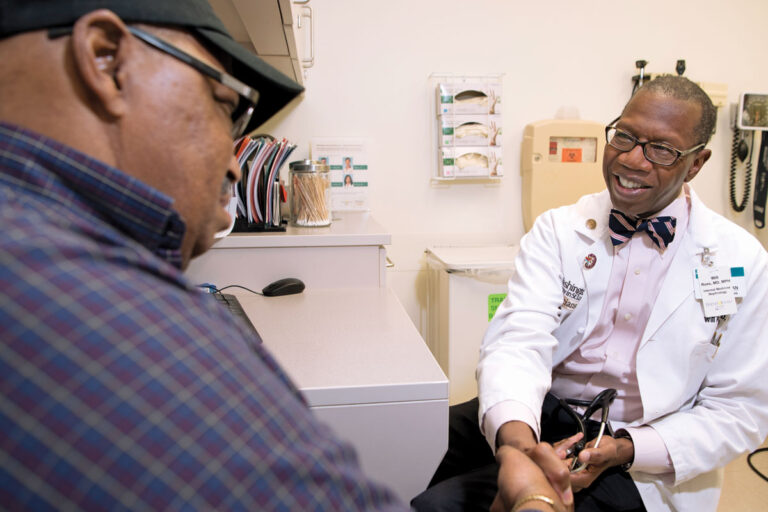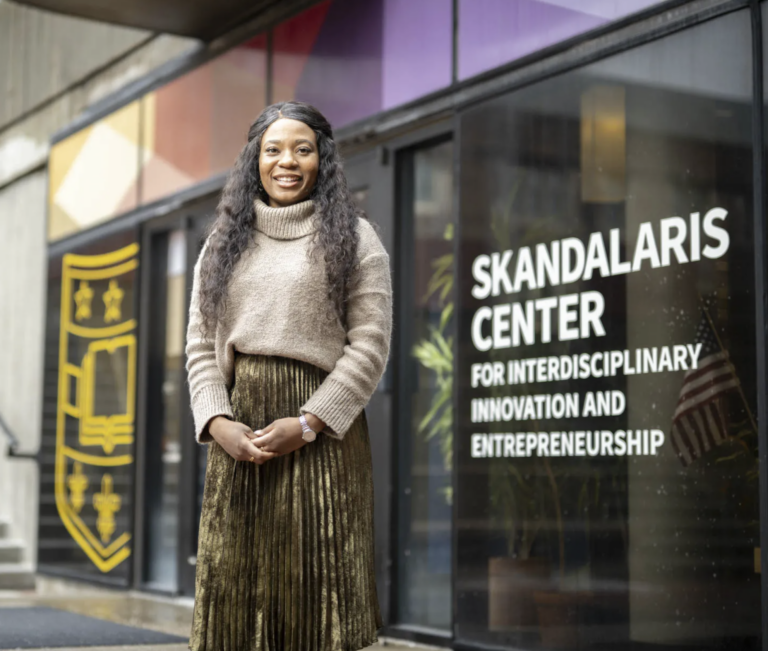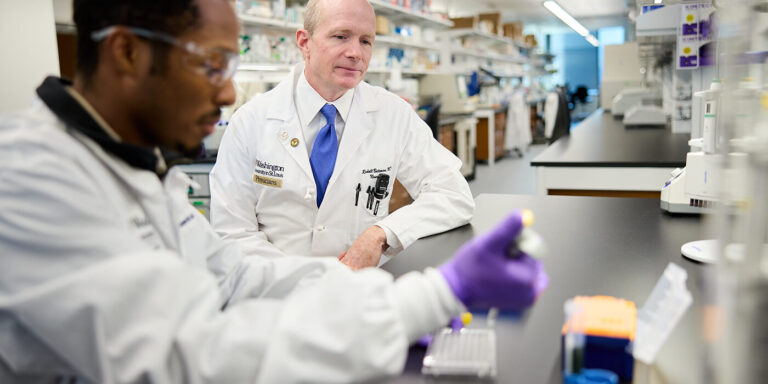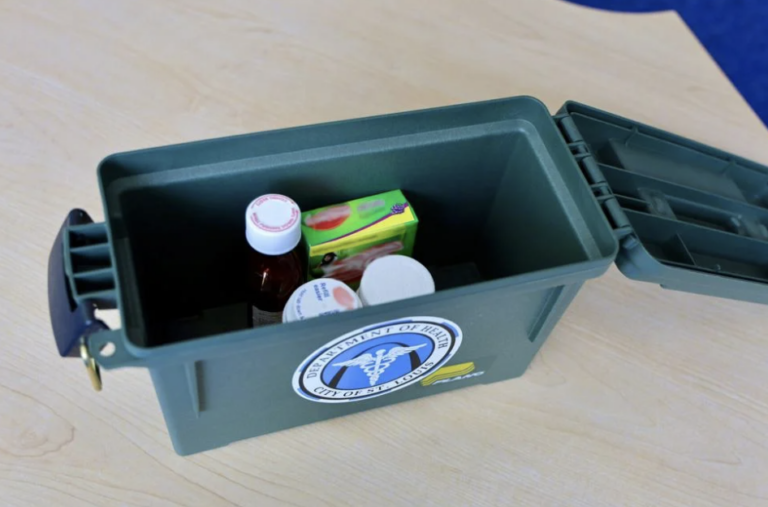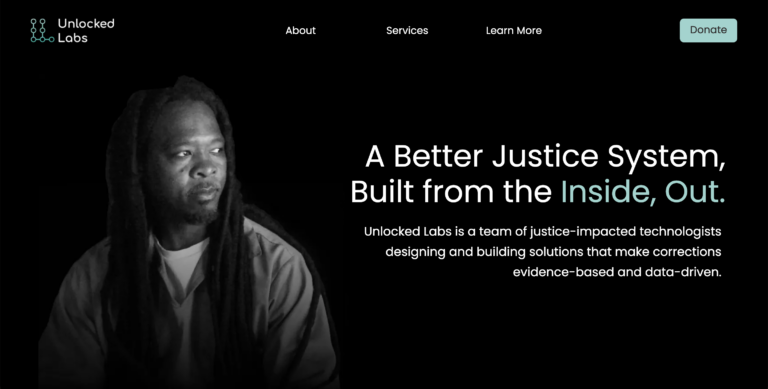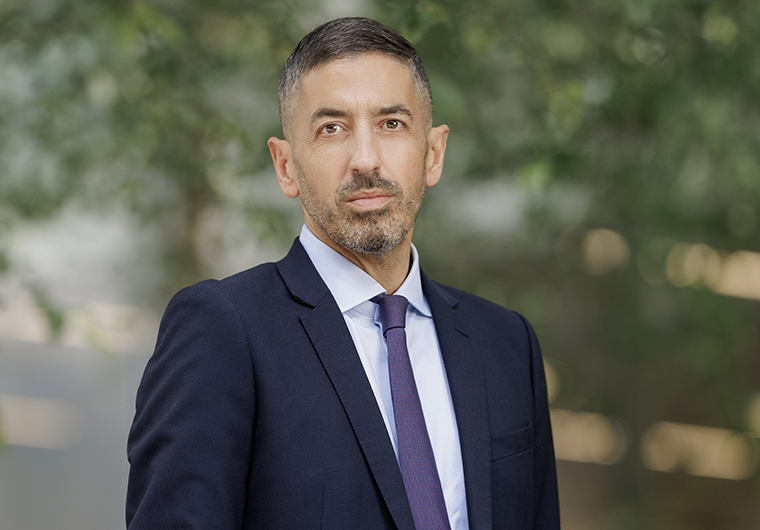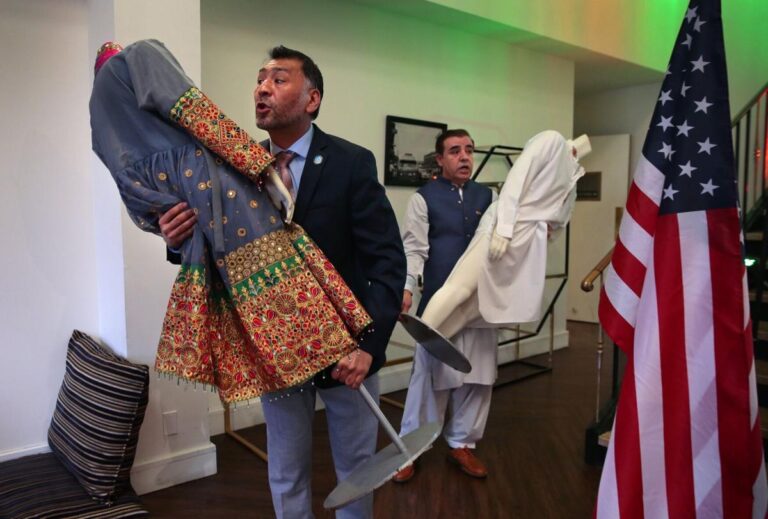Keller selected for Focus St. Louis leadership cohort
Christine Keller, director of career communities and career development at the Center for Career Engagement at WashU, was selected for Focus St. Louis’ fall 2024 Women in Leadership cohort among 34 local leaders. Members of the Women in Leadership cohort will have the opportunity to refine leadership competencies and network with women from diverse backgrounds. The program is offered each fall and spring and provides professionals with a deeper understanding of the St. Louis region.
Asquith S. “Sean” Armstong to be recognized at the 2024 Salute to Excellence in Education
Asquith S. “Sean” Armstong, dean of the School of Continuing & Professional Studies (CAPS) at Washington University St. Louis, will be honored with an Excellence in Education Award during the 2024 Salute to Excellence in Education Scholarship and Awards Gala.
One year in, Olin Dean notes growth in WashU’s flexible, executive MBA programs
In just over a year as dean of Washington University’s Olin Business School officially, Mike Mazzeo has presided over the creation of a new flexible master’s in business administration program that has seen 25% growth over the part-time programs it replaced and 20% growth in the school’s executive MBA program. The results, he said, fit into Olin’s strategic strengths: education contoured to the local business community’s needs, including the two part-time, non-traditional MBA programs.
Ross honored by Association of American Medical Colleges
Will Ross, MD, the associate dean for diversity and the Alumni Endowed Professor of Medicine at Washington University School of Medicine in St. Louis, has received the 2024 Louis W. Sullivan, MD, Award from the Association of American Medical Colleges (AAMC). The honor recognizes medical leaders committed to diversifying the health-care workforce. For nearly three decades, Ross, a nephrologist and public health epidemiologist, has devoted much of his career to eliminating health-care disparities in the U.S. and abroad as well as increasing diversity among medical students, residents and faculty. Additionally, Ross has developed innovative medical school pipeline programs designed to support promising students from underserved neighborhoods in St. Louis to pursue careers in the health-care industry.
Prep Work
With Top Tutors For Us, founder and WashU alum Angelica Harris is helping Black high school students build academic skills and improve college admissions test scores in St. Louis and across the U.S.
WashU research funding exceeds $1 billion for first time
For the first time, annual research funding to Washington University in St. Louis has surpassed $1 billion. External funding supports WashU investigators tackling big challenges from Alzheimer’s disease to air pollution to childhood depression. Research funding also ripples across the economy, sparking job growth, new construction and local spending, said Chancellor Andrew D. Martin.
St. Louis Children’s Hospital offers free lockboxes to curb rising overdoses, suicides
St. Louis Children’s Hospital will provide 1,000 free lockboxes over the next year to patients at risk of suicide or poisonings, both of which are increasingly taking the lives of Missouri children. “A locked box can be crucial to protecting older children, who may impulsively take medications as a form of self-harm or by accident,” said Dr. Lindsay Clukies, a Washington University emergency medicine physician at St. Louis Children’s Hospital.
St. Louis firm wins $100K grant to improve prison education platform
St. Louis-based Unlocked Labs is one of nine companies nationwide, and the only one from the Midwest, to win a $100,000 grant from the New York-based Robin Hood anti-poverty nonprofit’s AI Poverty Challenge to incorporate artificial intelligence into its educational platform for incarcerated people. Unlocked Labs is currently offering artificial intelligence-powered smart tutoring to around 6,000 incarcerated users in 13 prisons, partnering with Washington University, the State University of New York, Cornell University, Arizona State University and the non-profit Hudson Link for Higher Education in Prison.
Dean designate Galea to present vision for WashU’s planned School of Public Health
Sandro Galea, MD, DrPH, dean designate for Washington University in St. Louis’ planned School of Public Health, will provide a first look at his vision for the new school at the Public Health at WashU Annual Conference Oct. 21-22. The school — WashU’s first new school in a century — is set to galvanize public health research and scholarship in the St. Louis region.
Editorial: St. Louis is becoming an immigration magnet. And, yes, that’s a good thing.
It’s the result of concerted efforts to attract immigrants here by organizations including Greater St. Louis Inc., the International Institute of St. Louis and the St. Louis Mosaic Project. By raising private donations for targeted recruitment, the campaign has attracted Latin American and Cuban immigrants and provided job training and placement with the help of the Missouri AFL-CIO. More than 1,300 Afghan refugees have come for programs including entrepreneurial grants. Mayor Tishaura O. Jones has created a city Office of New Americans to help facilitate immigrant settlement.
